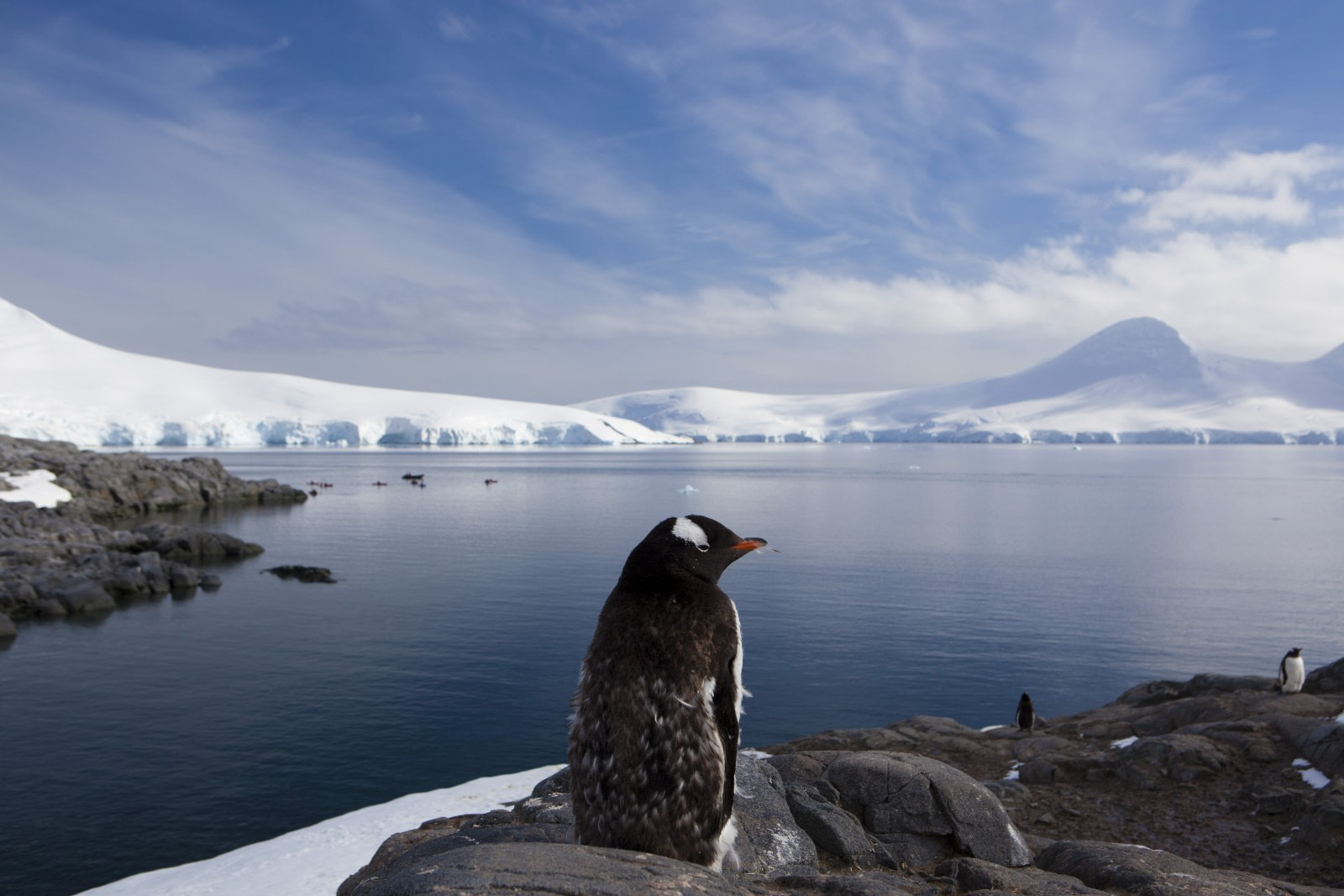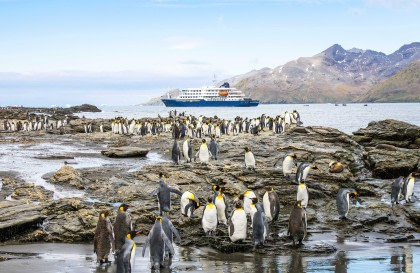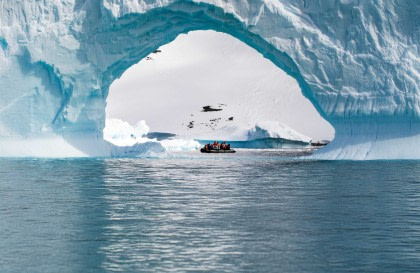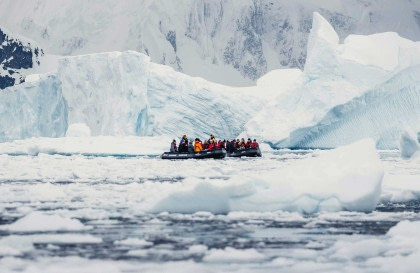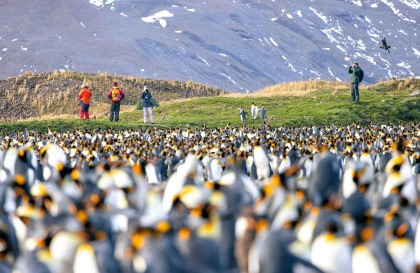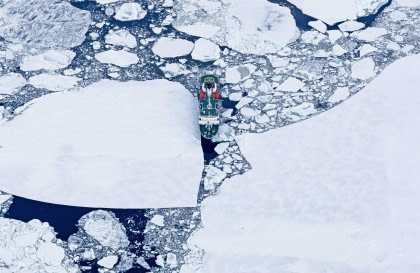Guidelines for visitors to Antarctica
Activities in the Antarctic are governed by the Antarctic Treaty of 1959 and associated agreements, referred to collectively as the Antarctic Treaty System. The Treaty established Antarctica as a zone of peace and science. In 1991, the Antarctic Treaty Consultative Parties adopted the Protocol on Environmental Protection to the Antarctic Treaty, which designates the Antarctic as a natural reserve.
The Protocol sets out environmental principles, procedures and obligations for the comprehensive protection of the Antarctic environment, and its dependent and associated ecosystems. The Consultative Parties have agreed that, pending its entry into force, as far as possible and in accordance with their legal system, the provisions of the Protocol should be applied as appropriate.
The Environmental Protocol applies to tourism and non-governmental activities, as well as governmental activities in the Antarctic Treaty Area. It is intended to ensure that these activities, do not have adverse impacts on the Antarctic environment, or on its scientific and aesthetic values.
This Guidance for Visitors to the Antarctic is intended to ensure that all visitors are aware of, and are therefore able to comply with, the Treaty and the Protocol. Visitors are, of course, bound by national laws and regulations applicable to activities in the Antarctic.
Further, the Antarctic Conservation Act of 1978 (U.S. Public Law 95-541) was adopted by the United States Congress to protect and preserve the ecosystem, flora and fauna of the continent, and to implement the Agreed Measures for the Conservation of Antarctic Fauna and Flora. The Act sets forth regulations, which are legally binding, for U.S. citizens and residents visiting Antarctica.
Briefly, the Act provides the following:
In Antarctica the Act makes it unlawful, unless authorised by regulation or permit issued under this Act, to take native animals or birds, to collect any special native plant, to introduce species, to enter certain special areas (SPA’s), or to discharge or dispose of any pollutants. To “take” means to remove, harass, molest, harm, pursue, hunt, shoot, wound, kill, trap, capture, restrain, or tag any native mammal or native bird, or to attempt to engage in such conduct.
Under the Act, violations are subject to civil penalties, including a fine of up to US Dollar 10,000 and one year imprisonment for each violation. The complete text of the Antarctic Conservation Act of 1978 can be found in the ship’s library. Our ship’s staff will make certain that the Antarctic Conservation Act and the above guidelines are adhered to. By encouraging your fellow expeditionary to follow your environmentally conscious efforts you will help us to ensure that Antarctica will remain pristine for the enjoyment of future generations.
Protect Antarctic Wildlife
Taking or harmful interference with Antarctic wildlife is prohibited except in accordance with a permit issued by a national authority.
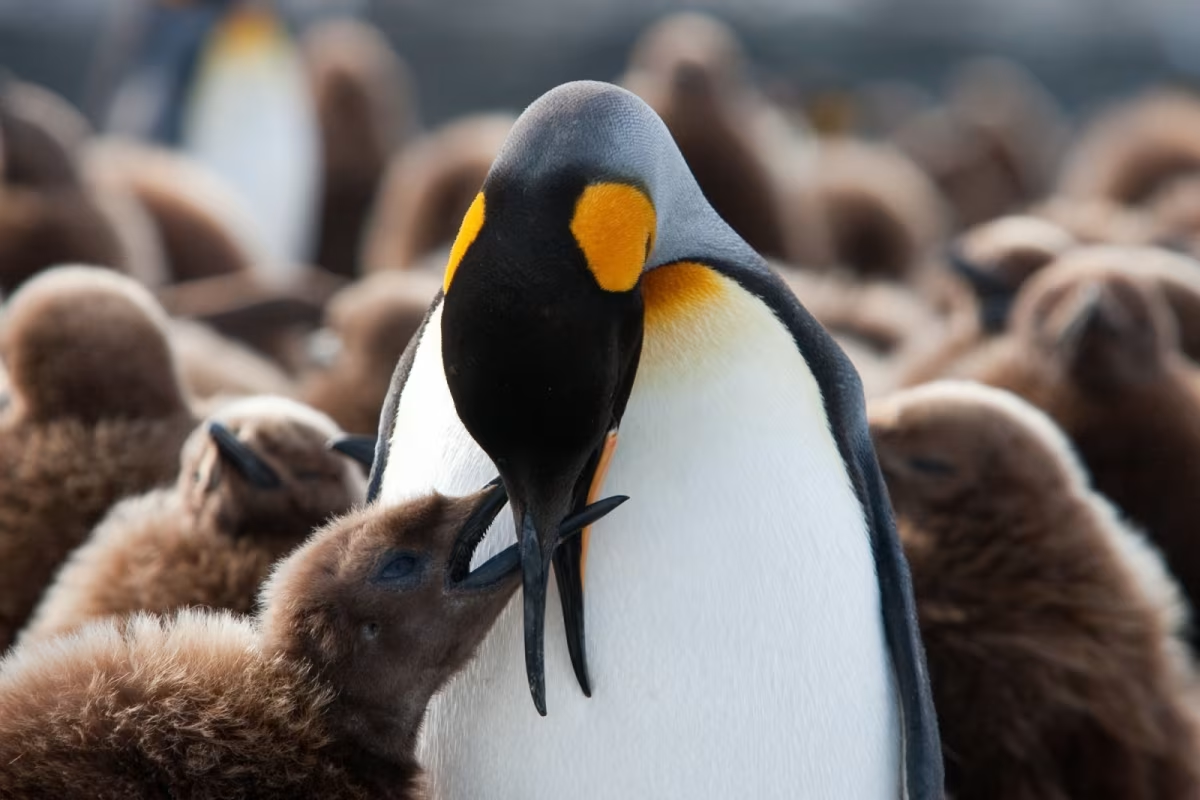
- Do not use aircraft, vessels, small boats, or other means of transport in ways that disturb wildlife, either at sea or on land.
- Do not feed, touch, or handle birds or seals, or approach or photograph them in ways that cause them to alter their behaviour. Special care is needed when animals are breeding or moulting.
- Do not damage plants, for example by walking, driving, or landing on extensive moss beds or lichen-covered scree slopes.
- Do not use guns or explosives. Keep noise to the minimum to avoid rightening wildlife.
- Do not bring non-native plants or animals into the Antarctic such as live poultry, pet dogs and cats or houseplants.
Respect Protected Areas
A variety of areas in the Antarctic have been afforded special protection because of their particular ecological, scientific, historic or other values. Entry into certain areas may be prohibited except in accordance with a permit issued by an appropriate national authority. Activities in and near designated Historic Sites and Monuments and certain other areas may be subject to special restrictions.
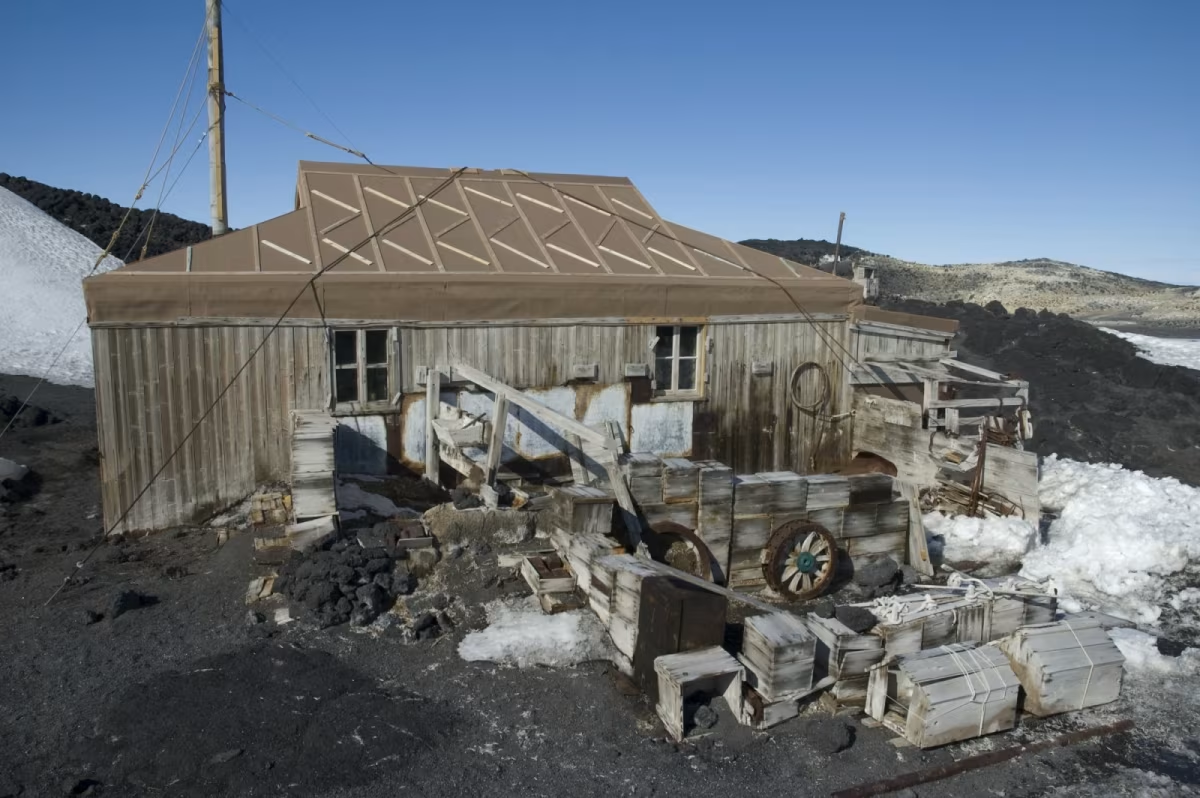
- Know the locations or areas that have been afforded special protection and any restrictions regarding entry and activities that can be carried out in and near them.
- Observe applicable restrictions.
- Do not damage, remove, or destroy Historic Sites or Monuments or any artefacts associated with them.
Respect Scientific Research
Do not interfere with scientific research, facilities or equipment.
- Obtain permission before visiting Antarctic science and support facilities; reconfirm arrangements 24-72 hours before arrival; and comply with the rules regarding such visits.
- Do not interfere with, or remove, scientific equipment or marker posts, and do not disturb experimental study sites, field camps or supplies.
Be Safe
Be prepared for severe and changeable weather and ensure that your equipment and clothing meet Antarctic standards. Remember that the Antarctic environment is inhospitable, unpredictable, and potentially dangerous.
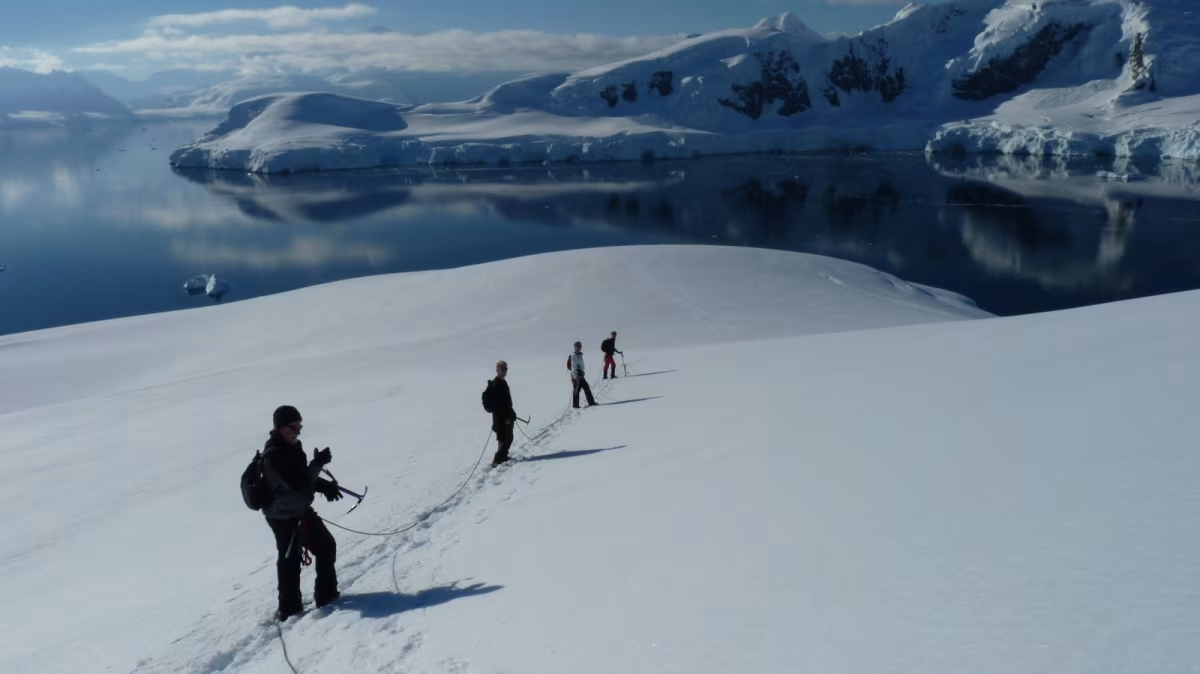
- Know your capabilities, the dangers posed by the Antarctic environment, and act accordingly. Plan activities with safety in mind at all times.
- Keep a safe distance from all wildlife, both on land and at sea.
- Take note of, and act on, the advice and instructions from your leaders; do not stray from your group.
- Do not walk onto glaciers or large snowfields without the proper equipment and experience; there is a real danger of falling into hidden crevasses.
- Do not expect a rescue service. Self-sufficiency is increased and risks reduced by sound planning, quality equipment, and trained personnel.
- Do not enter emergency refuges (except in emergencies). If you use equipment or food from a refuge, inform the nearest research station or national authority once the emergency is over.
- Respect any smoking restrictions, particularly around buildings, and take great care to safeguard against the danger of fire. This is a real hazard in the dry environment of Antarctica.
Keep Antarctica pristine
Antarctica remains relatively pristine, the largest wilderness area on Earth. It has not yet been subjected to large scale human perturbations. Please keep it that way.
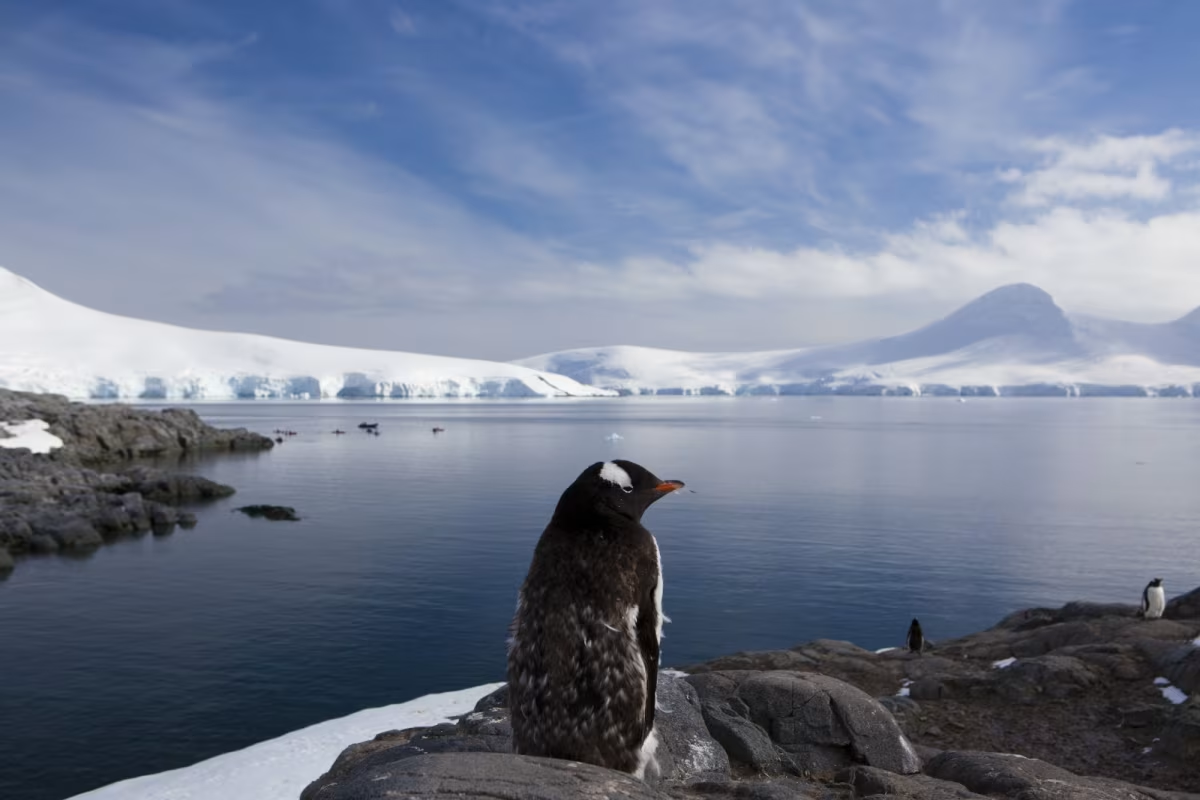
- Do not dispose of litter or garbage on land. Open burning is prohibited.
- Do not disturb or pollute lakes or streams. Any materials discarded at sea must be disposed of properly.
- Do not paint or engrave names or graffiti on rocks or buildings.
- Do not collect or take away biological or geological specimens or manmade artefacts as a souvenir, including rocks, bones, eggs, fossils, and parts or contents of buildings.
- Do not deface or vandalise buildings, whether occupied, abandoned, or unoccupied, or emergency refuges.
